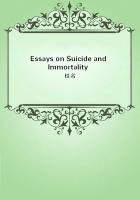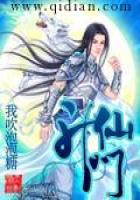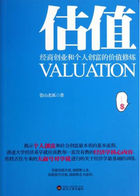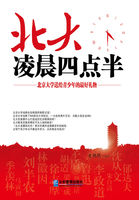The clergy were not only thus general benefactors in an age of turbulence and crime, in spite of all their narrowness and spiritual pride and their natural ambition for power, but they lent a helping hand to the peasantry. The Church was democratic, and enabled the poor to rise according to their merits, while nobles combined to crush them or keep them in an ignoble sphere. In the Church, the son of a murdered peasant could rise according to his deserts; but if he followed a warrior to the battle-field, no virtues, no talents, no bravery could elevate him,--he was still a peasant, a low-born menial. If he entered a monastery, he might pass from office to office until as a mitred abbot he would become the master of ten thousand acres, the counsellor of kings, the equal of that proud baron in whose service his father spent his abject life. The great Hildebrand was the son of a carpenter. The Church ever recognized, what feudality did not,--the claims of man as man; and enabled peasants' sons, if they had abilities and virtues, to rise to proud positions,--to be the patrons of the learned, the companions of princes, the ministers of kings.
And that is the reason why Charlemagne befriended the Church and elevated it, because its influence was civilizing. He sought to establish among the clergy a counterbalancing power to that of nobles. Who can doubt that the influence of the Church was better than that of nobles in the Middle Ages? If it ground down society by a spiritual yoke, that yoke was necessary, for the rude Middle Ages could be ruled only by fear. What fear more potent than the destruction of the soul in a future life! It was by this weapon--excommunication--that Europe was governed. We may abhor it, but it was the great idea of Mediaeval Europe, which no one could resist, and which kept society from dissolution. Charlemagne may have erred in thus giving power and consideration to the clergy, in view of the subsequent encroachments of the popes. But he never anticipated the future quarrels between his successors and the popes, for the popes were not then formidable as the antagonists of kings. I believe his policy was the best for Europe, on the whole.
The infancy of the Gothic races was long, dark, dreary, and unfortunate, but it prepared them for the civilization which they scorned.
Such were the services which this great sovereign rendered to his times and to Europe. He probably saved it from renewed barbarism.
He was the great legislator of the Middle Ages, and the greatest friend--after Constantine and Theodosius--of which the Church can boast. With him dawned the new civilization. He brought back souvenirs of Rome and the Empire. Not for himself did he live, but for the welfare of the nations he governed. It was his example which Alfred sought to imitate. Though a warrior, he saw something greater than the warrior's excellence. It is said he was eloquent, like Julius Caesar. He loved music and all the arts. In his palace at Aix-la-Chapelle were sung the songs of the earliest poets of Germany. He took great pains to introduce the Gregorian chant.
He was simple in dress, and only on rare occasions did he indulge in parade. He was temperate in eating and drinking, as all the famous warriors have been. He absolutely abhorred drunkenness, the great vice of the Northern nations. During meals he listened to the lays of minstrels or the readings of his secretaries. He took unwearied pains with the education of his daughters, and he was so fond of them that they even accompanied him in his military expeditions. He was not one of those men that Gibbon appreciated;but his fame is steadily growing, after a lapse of a thousand years. His whole appearance was manly, cheerful, and dignified.
His countenance reflected a child-like serenity. He was one of the few men, like David, who was not spoiled by war and flatteries.
Though gentle, he was subject to fits of anger, like Theodosius;but he did not affect anger, like Napoleon, for theatrical effect.
His greatness and his simplicity, his humanity and his religious faith, are typical of the Germanic race. He died A. D. 814, after a reign of half a century, lamented by his own subjects and to be admired by succeeding generations. Hallam, though not eloquent generally, has pronounced his most beautiful eulogy, "written in the disgraces and miseries of succeeding times. He stands alone like a rock in the ocean, like a beacon on a waste. His sceptre was the bow of Ulysses, not to be bent by a weaker hand. In the dark ages of European history, his reign affords a solitary resting-place between two dark periods of turbulence and ignominy, deriving the advantage of contrast both from that of the preceding dynasty and of a posterity for whom he had founded an empire which they were unworthy and unequal to maintain."To such a tribute I can add nothing. His greatness consists in this, that, born amidst barbarism, he was yet the friend of civilization, and understood its elemental principles, and struggled forty-seven years to establish them,--failing only because his successors and subjects were not prepared for them, and could not learn them until the severe experience of ten centuries, amidst disasters and storms, should prove the value of the "old basal walls and pillars" which remained unburied amid the despised ruins of antiquity, and show that no structure could adequately shelter the European nations which was not established by the beautiful union of German vigor with Christian art,--by the combined richness of native genius with those immortal treasures which had escaped the wreck of the classic world.
AUTHORITIES.















